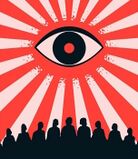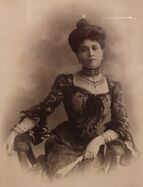Acràlia
This article is incomplete because it is pending further input from participants, or it is a work-in-progress by one author. Please comment on this article's talk page to share your input, comments and questions. Note: To contribute to this article, you may need to seek help from the author(s) of this page. |
Kingdom of Ocraly Regno d'Acràlia | |
|---|---|
| 'Motto: '"Libertà, Uguaglianza, Fratellanza" "Liberty, Equality, Fraternity" | |
| Capital | Fangosa |
| Largest | Bellarossa |
| Official languages | Mantellan |
| Recognised national languages | Mantellan (90%) Cristinese (82%) Lysian (81,3%) Florentian creole (45%) |
| Recognised regional languages | Gaellician (10%) Baviak (5%) |
| Ethnic groups | Lysian (38%) Cristinese (37%) Gaellician (8%) Mantellan (7%) Baviaks (7%) others (3%) |
| Religion | Orthodoxy (59%) Orthodox Demonism (20%) Agnosticism (15%) others (6%) |
| Government | Unitary constitutional monarchy |
• King of the Ocralians | Louis-Charles of Asmavie |
• Prime Minister | Leonardo Emaricci |
| Legislature | Assembly |
| Establishment | |
• War of independance from Mantella and establishment of the first Ocralian Republic | 1795-1797 |
• First Florentian invasion and establishment of the Kingdom of Ocraly | 1801 |
• First independance from Florentia and establishment of the second Ocralian Republic | 1878 |
• Second florentian invasion and restauration of the monarchy | 1924 |
• Second independance from Florentia and writing of the current ocralian constitution | 1945 |
| Population | |
• Estimate | 14,340,000 |
| GDP (nominal) | estimate |
• Total | 353 000 000 000 |
• Per capita | 24,622 |
Acràlia, also known as Ocraly, officially the Kingdom of Acràlia, is a small developped nation located on the Cashari Island, in Alharu. It has a population of approximatly 14,340,000 inhabitants. The capital city is Fangosa but the biggest city is Bellarossa, nicknamed "the Queen of Ocraly" or "the Passionate" (l'Appassionata). The size of the country is of 100,000 km2. It is bordered by Florentia at the West, and by the Borgiosa river at the North and the East.
A former mantellan colony, Ocraly got independant in 1797 thanks to Florentian interference. However, then, Ocraly suffered from political and economic stability because of florentian interference and occupations until its third independance, in 1945. Between the early 1950s and the early 1980s, Ocraly experienced a prosperous period of rapid economic growth and political stability, though at the cost of authoritarian measures despite the democratic nature of the government. In 1983, following the death of Prime minister Orlando Digolla and the collapse of the conservative-communist establishment, the Acràlian Communist Party took advantage of a country-wide strike to attempt to otherthrow the government. However, the revolution got violently repressed and the communist party was banned, definitly ending the ocralian establishment. The new establishement, a broad mix of center-left to center-right parties, enacted numerous socially and economicly liberal measures. While some allowed for social progress, such as the right to abortion, homosexual marriage, reckognition of transgender people, the extreme liberalisation of the economy led to a general decrease of the standard of living.
The Ocralian economy is primarly based on its secondary and primary sectors, with major profits from coal and sulfur extraction, as well as the chemical, metallurgical, heavy machinery and arms industries. Unlike other liberalised countries such as Seylos or Ahrana, Ocraly never switched to a tertiary based economy. Thus, its historically strong industrial sector greatly suffered, mostly from offshoring, which, added to an important Florentian immigration since the 1960s, increased unemployement from 2% in 1980 to 17% in 2020.
Etymology
The name "Acràlia" comes from the Mantellan word for ochre (acrà), because of the red ochre colour of the soil.
However, the name internationally used to name the country is Ocraly, which is an anglicisation of the Lysian translation Ocralie.
Geography
Ocraly has a landmass of about 150 000 km2 for a population of 14 340 000 inhabitants. The country is bordered in the north and east by the Rossa river, alongside which most of the population lives. Fangosa, the capital, is located at the estuary of the Rossa river while the biggest city, Bellarossa, is in the north-west, is also located next to the river.
History
Pre-colonial era
Mantellan colonisation (1523-1795)
First independance and First Republic (1795-1801)
In 1793, the Mantellan government attempted to tax the lucrative Ocralian wine, an exotic delicacy whose reputation was on the rise in Europa. This act greatly angered the Ocralians, since the Mantellan government was taxing them without representation. The 14th of September 1794, a group of Ocralian dockers secretly replaced the wine inside of the bottles by diluted vomit, which was discovered only when the shipement arrived in Mantella. Coincidence or not, one of the crates was intented for the King of Mantella.
The later, humiliated, demanded enormous reparations from the governor of Ocraly, Benvenutu di Paoli. Di Paoli refused, explaining that the Colony would otherwise go bankrupt. Neither side calming or escalating the tensions, the situation stayed idle while staying tense. However, in 1795, the Florentian government officially declared its support to Ocralian independance. Jumping on the opportunity, the Governor of Ocraly declared the independance of the Ocralian Republic.
While dissatisfaction wasn't new among the Ocralian settlers, many were still clinging to the Mantellan crown. The army of Ocraly was quickly split between loyalists and independantists. While the independantists were initially overwhelmed, the Florentian army defeated the loyalists and, in 1797, the Mantellan crown was forced to reckognise the new independant state.
The Constitution of 1780 established a restrictive democratic system : only land-owning citizens were allowed to vote, thus excluding the small farmers, labourers and urban middle class from political life. Furthermore, the executive and legislative powers weren't separate, with the President acting also as Prime minister. Finally, newly-elected President Benvenutu di Paoli attempted to enforce Mantellan as the primary language to force national unity. Indeed, while dominated by Mantellans, the colony was in majority Cristinese. These policies were met with uproar from most Ocralians. Protests were often dealt with violence.
In 1801, after Florentian imports of tobacco were allowed, Ocralian tobacco producers went on the verge of bankrupcy. Di Paoli enacted tarifs on Florentian tobacco. Angered, Florentia swiftly invaded the country, creating the first Kingdom of Ocraly.
First Kingdom of Ocraly (1801-1878)
The Constitution of 1802 transformed Ocraly into a constitutional monarchy similar to the Ambroisian system of Florentia. Louis-Philippe d'Asmavie, nephew of Emperor Ambroise I, was crowned King Luigi I of Ocraly in 1802.
The rule of Luigi I (1802-1844) was dedicated to the cultural integration, religious conversion and modernization of the country. A military commander who fought during the first Florentian conquests, he got the crown of Ocraly to thank him for his military prowesses. Luigi I ruled in collaboration with the Mantellan landed oligarchy of Ocraly while maintaining good relations with the Lysian nobility, which led to a sharp rise in foreign direct investment, especially in the coffee plantations and mining. The general standard of living rose steadily. However, his laissez-faire doctrine (opposed to the interventionist and populist Florentian economy) primarily benefited the already privileged social classes.
The Ocralian economy was controled by the "Scienziati", a group of technocratic advisors who managed to increase trade, stabilize and modernise the economy, and industrialise the country. However, the increased amount of peasants leaving the countryside for the growing industrial zones worsened the rising price of food, alienating most of the lower class.
Furthermore, while voting was allowed for all male citizens, the political system was plagued with corruption, threats and gerrymandering, leading to the domination of the Party of Progress, led by the Mantellan oligarchy and the Lysian nobility.
In 1844, the car transporting the royal family was blown up by an anarchist terrorist attack, killing everyone except Adriana, the first daughter of the King. The closest male heir being the Emperor Célestin II, the National Assembly of Ocraly quickly announced the coronation of Queen Adriana I to prevent the removal of Ocralian autonomy.
Adriana, reckonising the need for change, reformed the political system of Ocraly. Electoral district bounderies were redrawn while the foundation of the Royal Bureau of Investigation helped tackling corruption. To tackle the prices of food, the Ocralian government sold unoccupied land to Florentians at low prices, which, after 20 years, made Ocraly food independant. Finally, she shifted from laissez-faire to interventionism, enacting many populist policies to promote social harmony. These policies, as well as her sympathy toward utopian socialism, gave her the nickname of "Red Queen".
This era, known as the Adrianese democracy, led to the collapsed of the Party of Order, replaced by the left-wing Party for Harmony and the center-right Liberal Party. Furthermore, the end of Lysian and Mantellan domination over the regime finally abolished the cultural integration policies which were repressing the Cristinese population, i.e. 80% of the Ocralians at the time.
Second independance and Second Republic (1878-1924)
In 1877, the Florentian civil war broke out. Initially, the Kingdom of Ocraly was supporting the Emperor against the slaver states. However, the army, mostly led by officers linked to the former Mantellan oligarchy, were deeply dissatisfied by the populist policies of the Queen. Jumping on the occasion, a coup d'Etat was commited in 1878 by colonel Basiliu di Campana. The Queen was exiled while the new Ocralian junta declared independance from Florentia. A month later, the second Ocralian Republic was proclaimed.
After cracking down on the Lysian nobility and the establishment politicians, di Campana granted himself the title Perpetual Dictator of Ocraly, title which would only grow with time. At the end of his rule, his full title was : "His Excellency, Generalissimo-Admiralissimo Basiliu di Campana, Perpetual Dictator of Ocraly for Life and after Death, Beloved Oppressor of the People, Supreme Father of the Ocralian Nation, Sole Liberator from the Tyranny of Democracy, Charitable Patriach of Ocraly, Mighty Shepheard of the Ocralian Spirit, Defender of the Faith, Resistor of the Antichrist, Missionary of the Far West Isles, Redeemed by Truth, Prophet of Regret and Absolution, Greatest among the Disciples, He Corrected by Peter the Apostle, Chosen by the Heavenly Lord, Exalted Vanguard against the Red Forces of Evil, Magnanimous Vanqisher of the Despotic Nomarch of Orcaly, Eternal Scourge of the Barbarian Kingdom of Per-Aten, Bloodier of Father-Sky and Mother-Earth, Patron of the Superior Ocralian Arts, Grand Reformer of the Third Tobacco Products Tax, Gracious Regulator of Salt, Uncrowned Monarch of Ocraly, Uncrowned Lord-Protector of the Ocralian Settlers of Fasaìl, Uncrowned Khan of Baviakya and Glorious Conqueror of the Most Serene Florentian Empire in General and Ocraly in Particular."

His rule is remembered as the second most brutal in Ocralian history. Di Campana established one of the first totalitarian one-party systems of the wurld, led by the Ocralian Party. He conducted an ethno-nationalist, fundamentally religious and self-sustaining policy. He is often regarded as proto-fascist and his methods inspired many totalitarian regimes, though many experts affirm that "Ocralianism" (also called "Campanism) isn't a proper ideology and simply designates the personal views of the dictator.
In 1883, to get rid of the Cashari minority, which was freed a two decades and a half earlier, Di Campana captured them and sold them as slaves to the neighboring Florentia.
The 25th of February, 1922, at the age of 76 and after 44 years of rule, Basiliu di Campana died from a heart attack. He was so adored that, after his death, his Secretary of State Marziale Marziale embalmed the body of di Campana and exposed his corpse in a public mausoleum, on Fangosa's main square. While Marziale Marziale seized power, he never claimed the titles of the dictator, meaning that di Campana remained the de jure head of state of Ocraly even after his death, until the official end of the regime in 1924.



